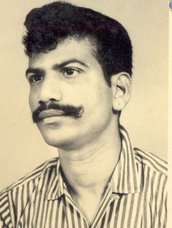Dear all I
wish to share with you the views of an American blogger Bob
Lonsberry regarding hard work and the evils of food
stamps, welfare measures etc given to the US
ABOUT
THE INDIAN GUY AT THE MOTEL – Bob Lonsberry ,
Written
May 15, 2012
Gujarat
is a state in the west of India
Mahatma
Gandhi was born there. And
so was the guy who runs the motel in your town. Odds
are, at any rate.
In
the United States , some 40
percent of all the hotels and motels are owned by Indians – almost all of them
from Gujarat . Among American economy motels,
specifically, more than half the owners are Gujarati.
There
is something called the Asian-American Hotel Owners Association.
It is a powerful professional group with more than 10,000 members. Some 90
percent of those members have the same last name – Patel – a name dominant in Gujarat .
Which
raises the question: How did the Indians, particularly from one relatively
small region of India
The
answer, in short: Hard work.
About
30 years ago, Gujarati began immigrating to the United States
They
typically brought with them the clothes on their back and an ancestral
work ethic.
They
also carried the desire to be the boss, to be business owners, not to be another man’s employee. Like generations of previous immigrants,
they carried an American dream of their own creation and distinctive bent.
Coincidentally,
about 30 years ago, there was a downturn in the
American
motel industry. Low-end motels were hard work and offered a limited return, and
owners were eager to get out of them.
A
handful of Gujarati stumbled across this opportunity. The motels could
be had for almost nothing up front, and they came with housing for the
immigrant family. And that immigrant family provided a roundthe-clock
workforce. It was incredibly hard and endless work, but the efforts of the
immigrants were up to the task, and these first few families found first a
living, and then success.
And
they told their friends.
And
they expanded, by buying more motels, and by moving up the economic
ladder to larger and nicer motels and hotels.
Back
home, as others sought to emigrate to the United States
Interestingly,
these people came with almost no money. And they came
with no background whatsoever in the lodging or hospitality industries.
All they brought was a willingness to embrace any opportunity
and to work hard to make it a success.
And
they have done that.
In
something between 20 and 30 years, Indians – who are about 1 percent
of the American population – have come to dominate this industry.
They have built solid lives for themselves and their employees,
and their children have gone on to be educated and move into the professions.
It
is a stunning success story.
It
is a reminder of the potential prosperity of immigrants who go to work instead
of to the welfare office.
It
is proof of the continued vigor and opportunity of the American economy
and the free-enterprise system.
It
is the American way proven again by newcomers’ hands.
But
it is more than that.
It
is also something of an indictment of native-born Americans who have
lingered in poverty and government dependence.
Part
of the horrific welfare plague is the curse of idleness it imposes on
recipients. The slavery of dependence takes initiative from people, and strips
them of the instinct of self-reliance. They become good at nothing,
and particularly good at doing nothing.
And
with the cloak of entitlement drawn over their eyes, they fail to see
liberating opportunity, they become unwilling to do the backbreaking work
necessary to lift themselves out of their circumstances.
When
the first few dozen essentially penniless Gujarati discovered the opportunity
of the then-dying motel business, there were tens of millions
of native-born Americans, food stamps in hand, who were blind
to the opportunity around them. While the newly arrived Indians worked day and
night, the entitled Americans kept drawing a check, and now that the Gujarati
children are successful business people and college graduates, the dependent
Americans wallow in the mire of another generation of welfare shame.
The
moral of this story?
Good
for them, and shame on us.
It
doesn’t matter where you’re from, it matters how you live. You get out
of life in proportion to what you put in.
These
Indians have been better Americans that some of us who were born
here. They have lived closer to our traditional values, and their choices
have been truer to our heritage.
Sadly,
some of us will resent them. Instead of emulating them.
We
will curse them for their success, rather than do what is necessary to find
success ourselves.
It
is not foreign invasion which threatens America
And
we will either realize that, and do something about it, or we will perish.
For original article visit
http://www.lonsberry.com/writings.cfm?story=3364&go=4
